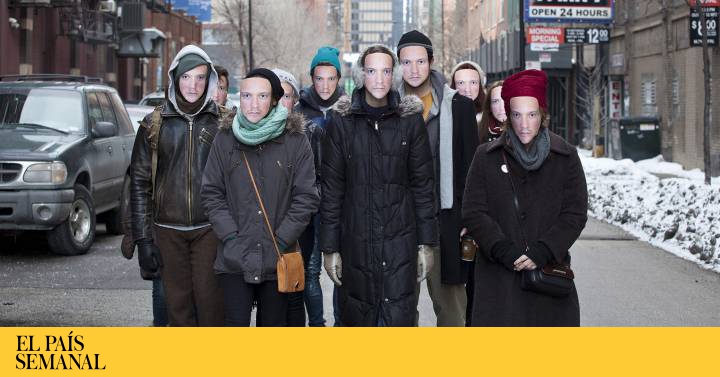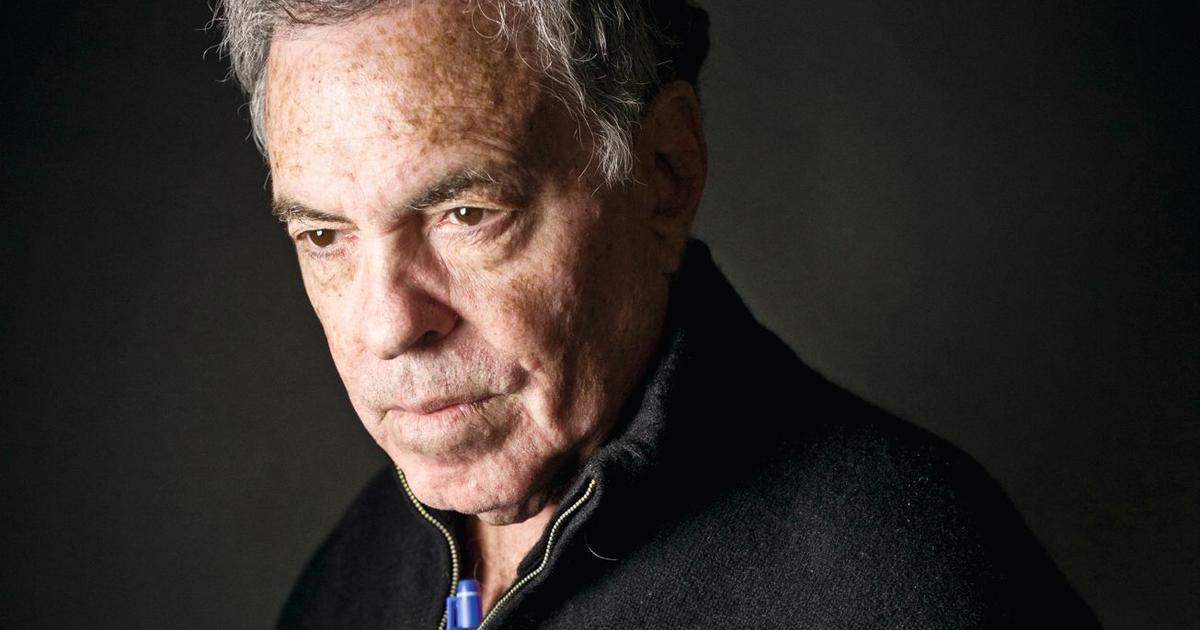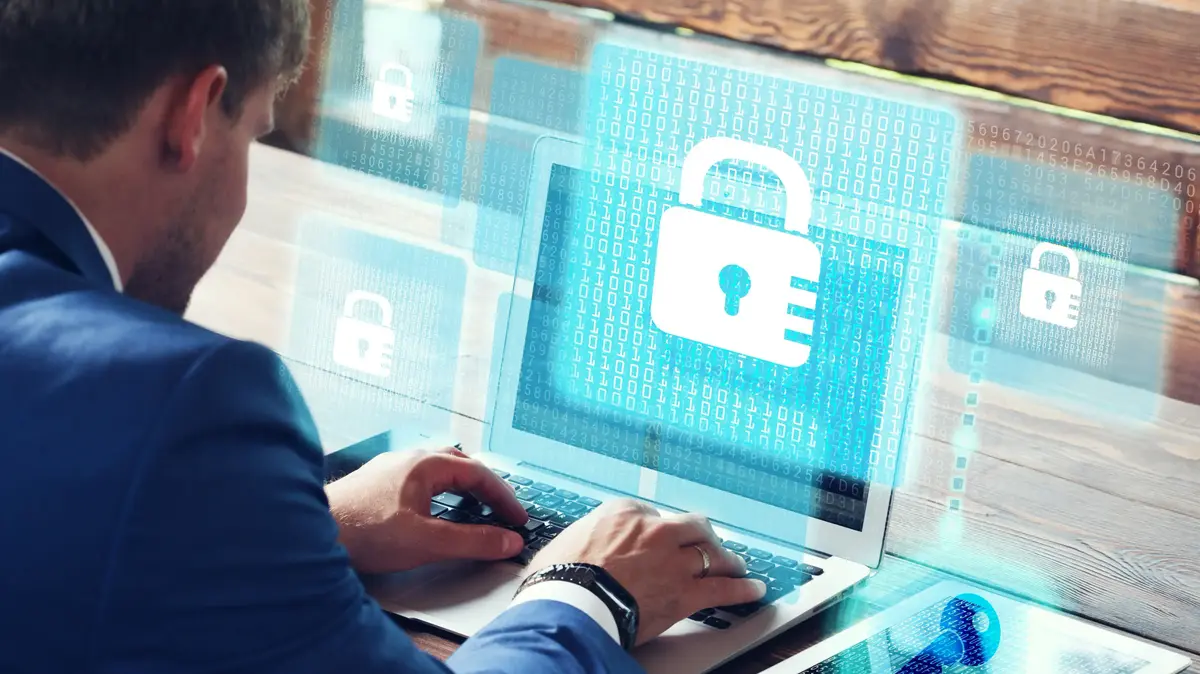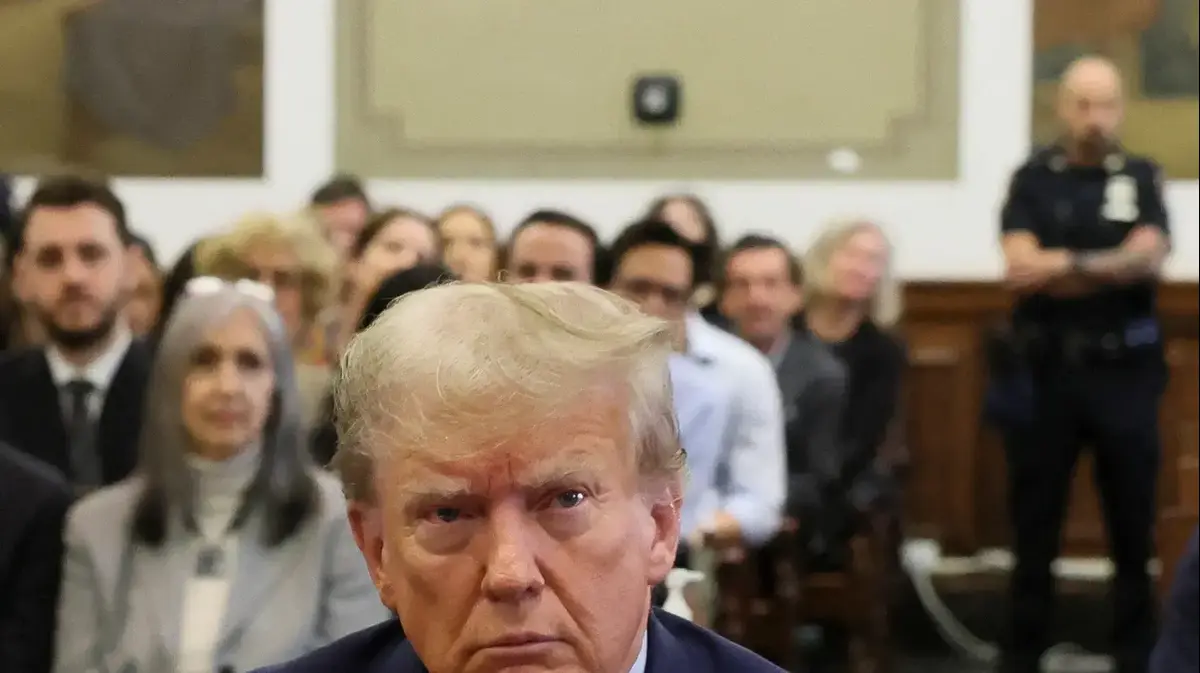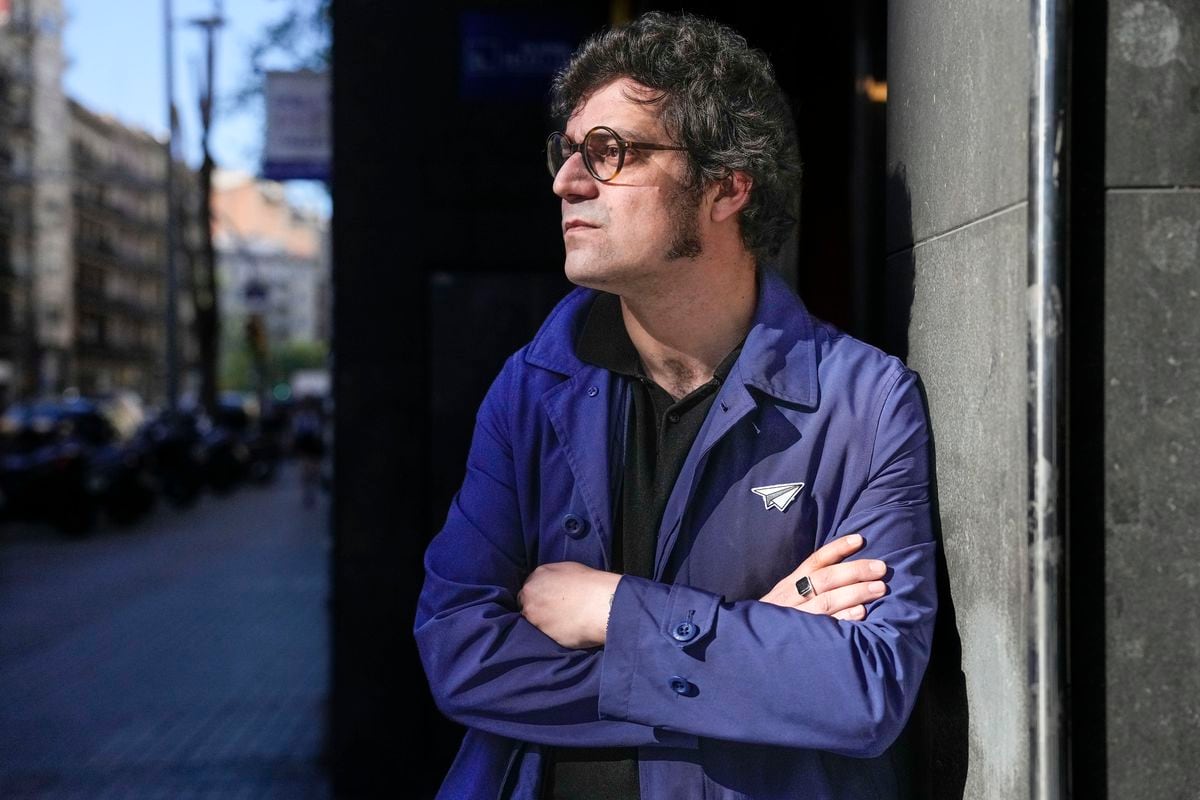Milton Friedman said that only a crisis, real or figurative, generates true change. Today we are facing a quantum crisis, real and figurative at the same time. Terribly real for those who have become ill or have died or have lost loved ones; for those who are out of work or see their business go bankrupt. Exhaustingly real for those who fight it in hospitals, laboratories, refugee settlements and nursing homes. But it is nothing more than an exaggerated flu for those who defy quarantine by drinking in the squares or yoga in the parks, an electoral setback for those who open the economy prematurely and a plot by the powerful to subdue the people for lovers of The conspiracy. The covid-19 pandemic is a new kind of disaster, characterized by an unsolvable conflict between its different versions.
Cognitive dissonance is permanent and daily. The Stock Market collapses and the economy collapses, but we have water, electricity, food and a la carte series. The Government decrees the registration of all our movements with mobility studies through the same phones with which we play anthems of antifascist resistance from the balcony. We suffocate at home when decontaminated air floats on the street for the first time in decades. It is the worst of times and it is the best of times. Rebirth and apocalypse at the same time. Adapting to contradictions comes at a price. "We swam on Netflix and on social media and podcasts, and all these distractions keep us engrossed in a fictional world," commented Naomi Klein in a recent interview. "And this is a time when we should be witnessing reality in the crudest way possible." In her last column for the news website The Intercept, the Canadian author warned that a kind of doctrine of pandemic shock is being configured, where governments take anti-democratic measures under the protection of the state of emergency and in alliance with the great technologies, which they expand their access to our data as part of the loot. Klein has called it screen new deal.
“The future that is accelerating as bodies continue to pile up,” writes Klein, “and these weeks of isolation are not interpreted as a painful necessity to save lives, but as a living laboratory for a permanent, and highly profitable, future of non-tactile solutions ”. In truth, that future was already here. No need to buy new gadgets or do a new installation. There was no learning curve. We had Zoom, Amazon Prime, Google schools, Glovo, Netflix and Movistar. Visa and Mastercard already mediated commercial exchanges before PayPal, Apple Pay or Bitcoin existed. Operators and digital platforms already knew where we had been and with whom every minute of the last 15 years. There were already infrared cameras in stadiums and airports, mass surveillance programs, facial recognition software. The impossible already seemed inevitable. The virus did nothing but press the accelerator.
Speed also came at a price. Zoom discovered its serious security holes when it went from being a corporate application with 10 million users to the solution of 300 million people to teach, celebrate birthdays, meetings, yoga classes, concerts and become the bar. "The next time you meet a system administrator, give him a hug," says Mikko Hyppönen, head of research at F-Secure and one of the world's top security experts. “Criminals are taking advantage to trick users into doing things they shouldn't do, such as clicking on the wrong link or opening dubious attachments or falling for a phishing campaign in which they ask you to put your name and password on a fake website " The most susceptible are the oldest and neediest. "There are a multitude of message attacks warning that 'one of your neighbors has been diagnosed with covid-19, click here for more information." Others pretend to send the money from the aid announced by the Government through a link where they request the credit card details to receive the bonuses. They arrive by mail, SMS and WhatsApp to people who have never used telematic services. Hackers' tactics have not changed with the massive adoption of these technologies, but their chances of success have increased exponentially.
Fear and inexperience are risk factors, but isolation especially affects the world of work. Few companies had implemented a security framework that transcends the perimeter of the office, leaving workers out of the automatic wheel of updates, security patches, or rotating passwords that systems managers have designed. "Then there is group immunity," explains Karsten Nohl, PhD in cryptography at the University of Virginia and head of the SRLabs hacker collective. "Companies send more emails than ever about all kinds of issues and there are no colleagues to tell you not to click what is a scam [electronic scam]."
There are also crucial jobs that cannot be done remotely, such as managing protected data or sensitive content. "The management of cryptographic keys for the digital signature has to be done from a certified office in our building," explains Mikko. “And the same goes for removing pornography or violent content on Facebook, Instagram or YouTube servers. You can't clean that kind of material from home, with your family close by. ” There has been a large increase in child pornography, including live broadcasts, on demand, from countries such as the Philippines, Thailand and Cambodia. The same goes for disinformation.
The media ecosystem that brings us the latest on zoonotic pandemics, epidemiological models, and analyzes of food production and distribution chains overflows with homeopathic remedies, coordinated attacks on public health, and elaborate conspiracy theories. "Scientific research is slow to come up with answers, and the continued demand for information offers a golden opportunity for false narratives," explains Renee DiResta, head of research at the Stanford University Internet Observatory and disinformation specialist. The gap is filled with false news about miracle drugs and government conspiracies, such as the controversial video of Judy Mikovits, a scientist with a dubious history who claims that masks make people sick and that the flu vaccine increases the risk of contracting covid-19. People who create and share such content are likely to believe others, such as that the virus is generated by the 5G radio frequency, and go outside to destroy antennas or call demonstrations against the isolation measures. "The most worrying thing is that these large groups end up rejecting the vaccine, once developed," says DiResta. They would not be the only ones affected. Crucial to achieving group immunity is the vaccination of at least half the population.
Hackers often work remotely, so quarantining has not affected their productivity. "We have seen many phishing campaigns [a type of online hoax] by state-funded hacker groups posing as the WHO," says Mikko. Google has identified more than 12 state groups operating in this framework, mainly to spy on and distribute disinformation campaigns. Luckily, and for now, the worst case scenario has not happened. Hospitals have not been paralyzed by the kind of attack that blocks access to crucial parts of the system and demands a ransom in exchange for their release. The main criminal groups announced that they would respect health infrastructure during the pandemic. "If we do it by mistake," those responsible for the DoppelPaymer Trojan promised analyst Lawrence Abrams, "we'll decrypt it for free." The amnesty excludes pharmaceutical companies because they "benefit from panic."
"Electronic payment is not easy to hack," says Nohl, whose demonstrations include holes in two of Germany's most popular electronic payment systems. "But you have the privacy problem. Paying by card or mobile leaves traces in databases that are easier to hack. " It does not anticipate the popularization of payment without ATMs or cards led by Amazon Go. "That technology is over 15 years old and nobody wanted to use it because it is easy to steal with it." Except if the store is equipped with facial recognition systems. And that is the main concern of specialists: technical problems are solvable, but privacy is also a political problem. "1984 describes a society where no one commits crimes because there are cameras everywhere," recalls Nohl. "It is very safe, but without privacy there is no democracy either."
"Any infrastructure that is deployed right now will be considered a long-term investment," explains Peaks Krafft, a researcher at the Oxford Internet Institute, a specialist in government surveillance. "It is perfectly plausible that governments refuse to abandon these incredibly powerful methods of mass digital surveillance when the crisis is over." All the specialists take as an example the surveillance network implemented by the United States after the attacks of September 11. "More than 18 years have passed and the level of terrorist emergency has been greatly reduced," says Nohl. "But the use of those technologies has only increased."
At the moment, the technologies implemented for the management of the pandemic belong to two classes: those that monitor quarantine compliance and those that assist in the "follow-up and tracking" system characteristic of epidemiological control campaigns. In the former, the novelty is not the technology, but the legitimacy of the act itself, which bypasses various civil rights under the exceptional framework of the emergency. Hong Kong uses electronic house arrest wristbands to monitor infected; Taiwan has a location system to surround them with a "digital fence." In Poland and India, those infected send a selfi verified by geolocation and facial recognition. The danger is not knowing how long the state of emergency will extend, and there are countries like Hungary and Israel that have already altered the legislation to extend it indefinitely. And there are companies implementing their own surveillance systems for airports and prisons to monitor the productivity of their workers with the excuse of measuring their temperature and observing that they comply with the sanitary distance. If the Administrations allow it because it helps to reactivate the economy, the docility of the worker is guaranteed.
The second class of technologies is designed to establish all the possible contagions that an infected person could have made. Google and Apple have already imposed their own Bluetooth-based traceability tracking infrastructure that will soon be on mobiles around the globe. Governments, companies and institutions will design their apps on it. Experts agree that the solution is secure and the data is protected. "I think these systems are surprisingly well designed and, as long as they are voluntary, they can be a great help in managing the pandemic," says Nohl. The debate over the privacy and security of your locks has silenced other perhaps more important issues: their functionality and consequences.
Tracking technology is only justified as a complement to appropriate diagnostic protocols, strictly temporary and activated by the positive result of a test. Without access to reliable diagnostic systems, which do not generate false results, they are just population control systems, which may be forced to voluntarily accept them to return to the job or take a plane. In addition to the loss of autonomy and privacy, there is the danger of discrimination against impoverished and racialized groups that lack spaces for distance or are forced to continue working in high-risk places, such as textile factories, distribution warehouses or meat packers.
"Another predictable pattern of behavior for surveillance technologies is that they are often created for a purpose, and there is quickly someone who finds them useful to others," Krafft says. It is not advisable to accept them without having established the parameters of their dismantling: how they are turned off, what we do with the data, who is responsible for ensuring that all this is accomplished and where the funds for this monitoring come from, especially if it includes companies like Google and Apple. And what do we do if, in the years that the emergency lasts, that infrastructure is normalized as a powerful and invisible governance tool. We would be facing a new emergency, this time political.
For now, the pandemic has already managed to quell months of mass protests in countries such as Hong Kong and Chile. And not only on the street. The measures that the platforms have taken against the distribution of false news also prevent the distribution of calls, slogans, instructions and crucial tools for activism. “Alterations to the architecture and algorithms of content distribution make it much more difficult to massify messages and unite voices,” explains Renata Ávila, an expert in international law and member of the legal team of Julian Assange, Edward Snowden or Rigoberta Menchú. "We can no longer rely on these tools in a future of uncertainty and many restrictions on protest."
The Smart Citizenship Foundation led by Ávila, based in Chile and Brazil, develops tools for society to exercise its civil rights without submitting to state surveillance, algorithmic control, and these new forms of registration and censorship facilitated by the pandemic. "The future of the protest is too important to leave to the Silicon Valley companies, which are especially vulnerable to international pressure and ignore local needs." The future forks with us within. The most comfortable options are still the most dangerous, but not everyone will have the freedom to choose. — eps
SPECIAL Notes from the future
the future is here
Leo Messi, Ferran Adrià, Rafa Nadal, Brigitte Bardot, Norman Foster, Cristina Garmendia, Audrey Azoulay ... culture, business, science and sport diagnose the present and the future for El País Semanal
The mysteries of SARS-CoV-19, a bad bug
There are still more unknowns than certainties around the covid-19. Doctors in ICUs add symptoms and complications. Like the dreaded cytokine storm, the cause of which remains a mystery.
And now ... how will we travel?
One of the first escapes to the safety distance in a swimsuit. Proximity, prevention, sustainability, nature and technology permeate the coming tourism
A new world order
The virus has already altered our way of life and caused a new economic recession. And its geopolitical consequences? Will it create a new global order?
While we jump the pit
Despite the magnitude of the drama, there are always lessons to be learned and lessons to be learned from what happened. Margaret Attwood, author of 'The Tale of the Maid' offers in this text some clues to do so. And to reunite with life
Where is the office?
Aseptic and distant offices. Compressed schedules and 'apps' tracking infections. Back to work: we visited the headquarters of various companies, from a multinational company housed in a skyscraper to animation studios
Dress the day after
Proposals to maintain social distance and that the transition from tracksuit to suit is not traumatic
The tribe revives with the pandemic
The pandemic has awakened solidarity and the collective spirit of society. Volunteers from all over Spain are mobilizing so that no one is left behind. Six stories about how this crisis has brought us together
New normality; same family
Confinement has forced us to discover coexistence. How has the experience been for the varied and diverse modality of Spanish families? A reporter and photographer tell it in the first person
Disrupted education
We enter the classrooms of the future with the OECD director of education. Helping students to think for themselves and to understand the limits of individual and collective action will be some keys. Comic Conclave during confinement. A telematic meeting with Eva Hache, Javier Coronas, Joaquín Reyes, José Mota, Santiago Segura, Susi Caramelo, Lorena Castell, Luis Piedrahita and Toni Martínez

